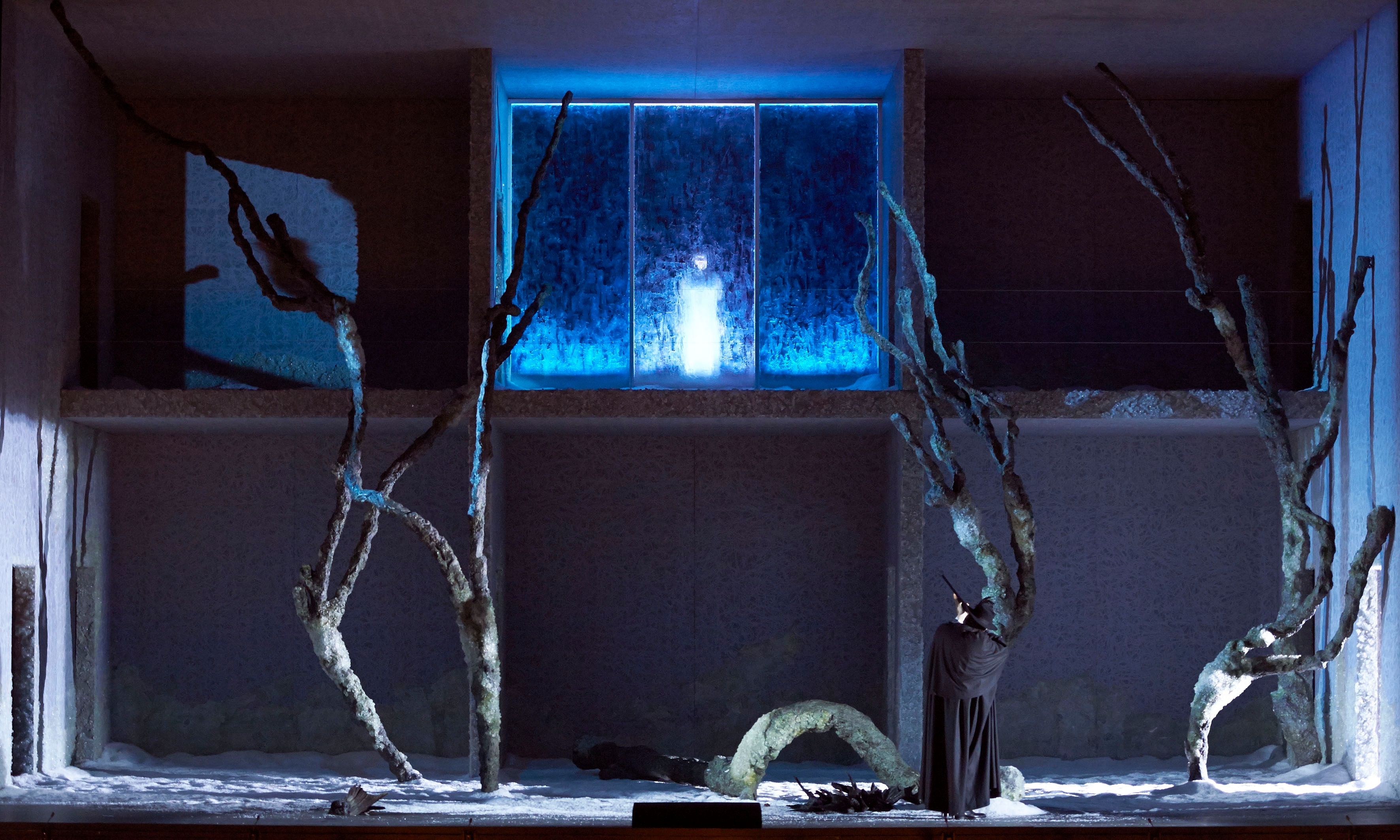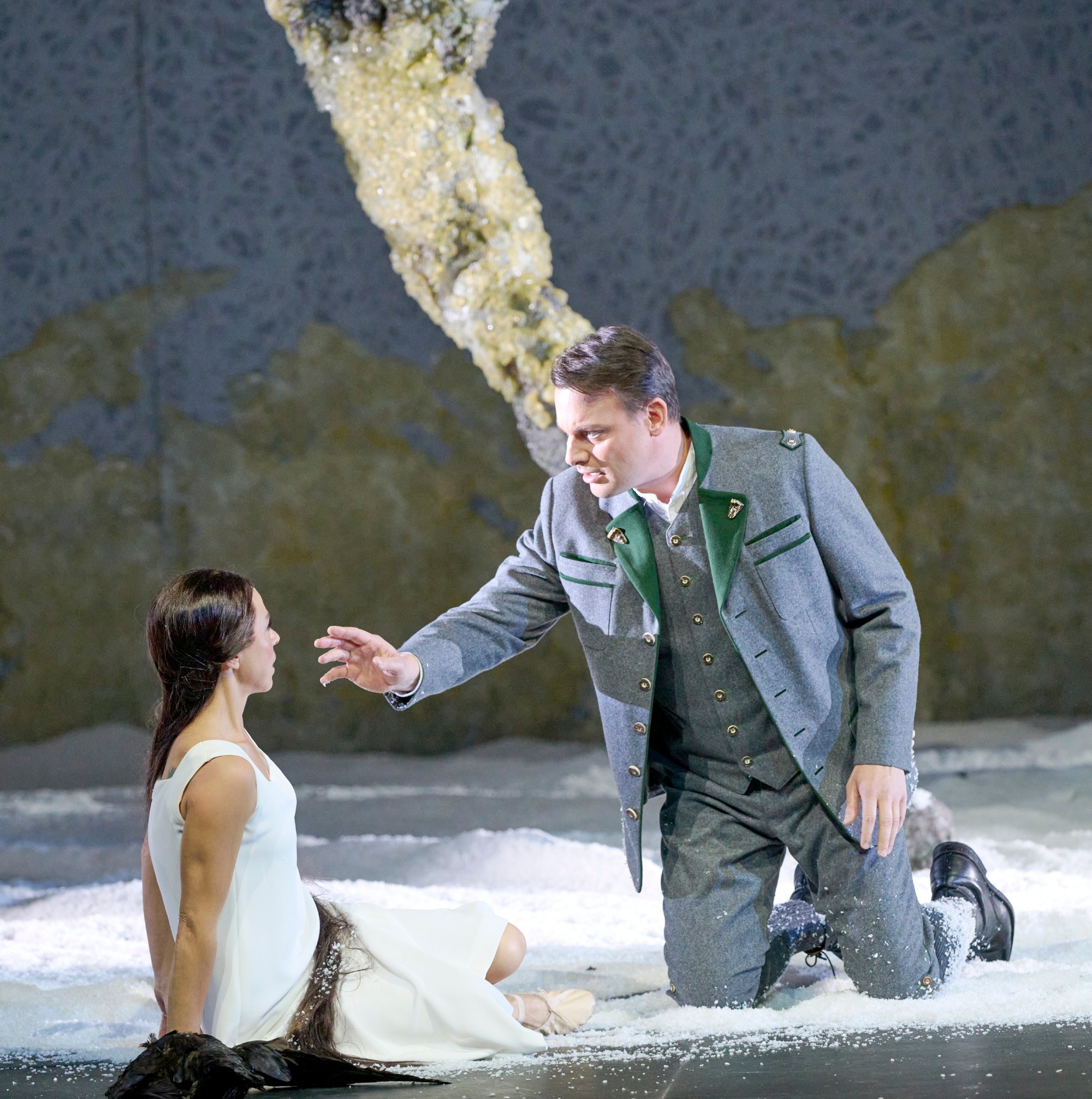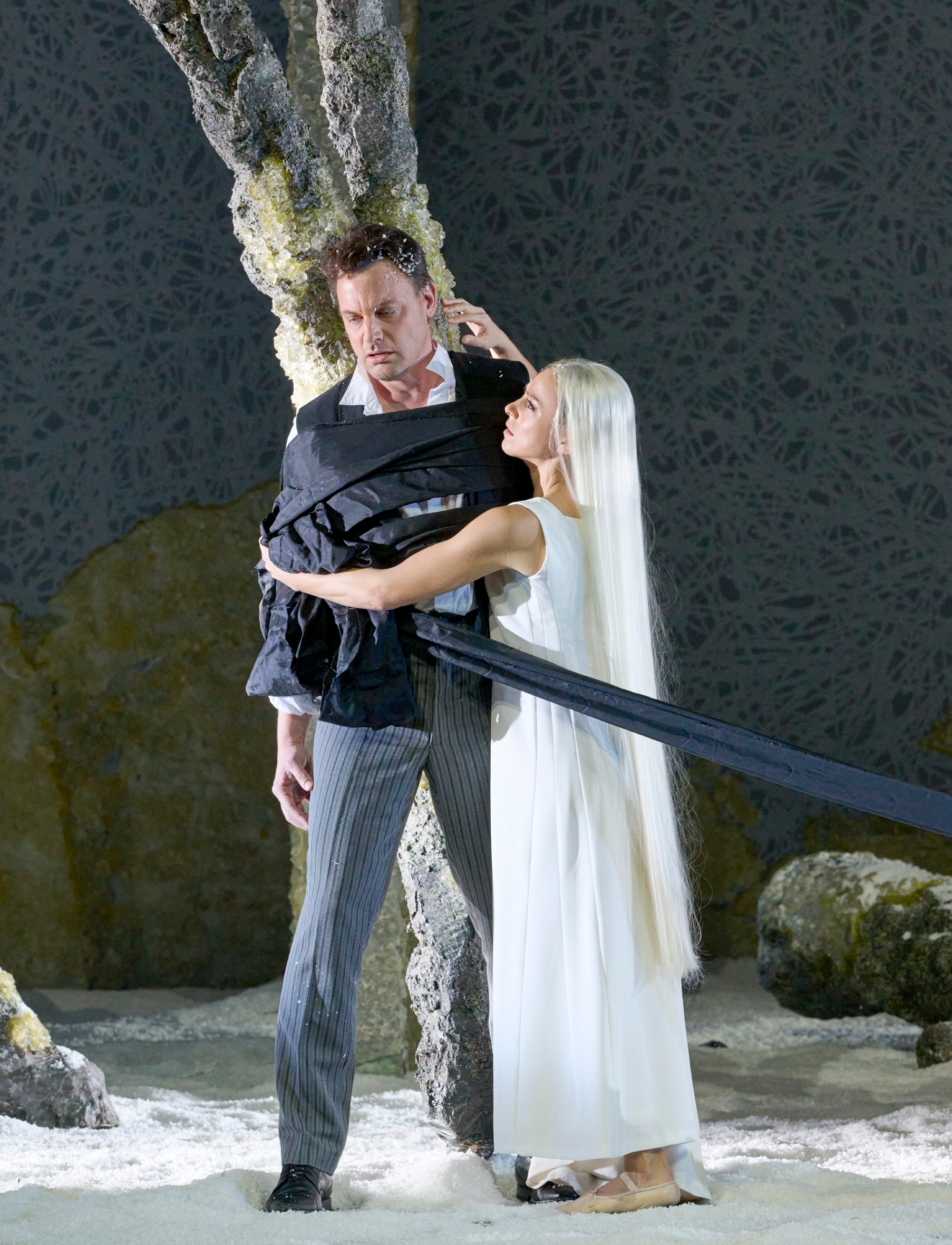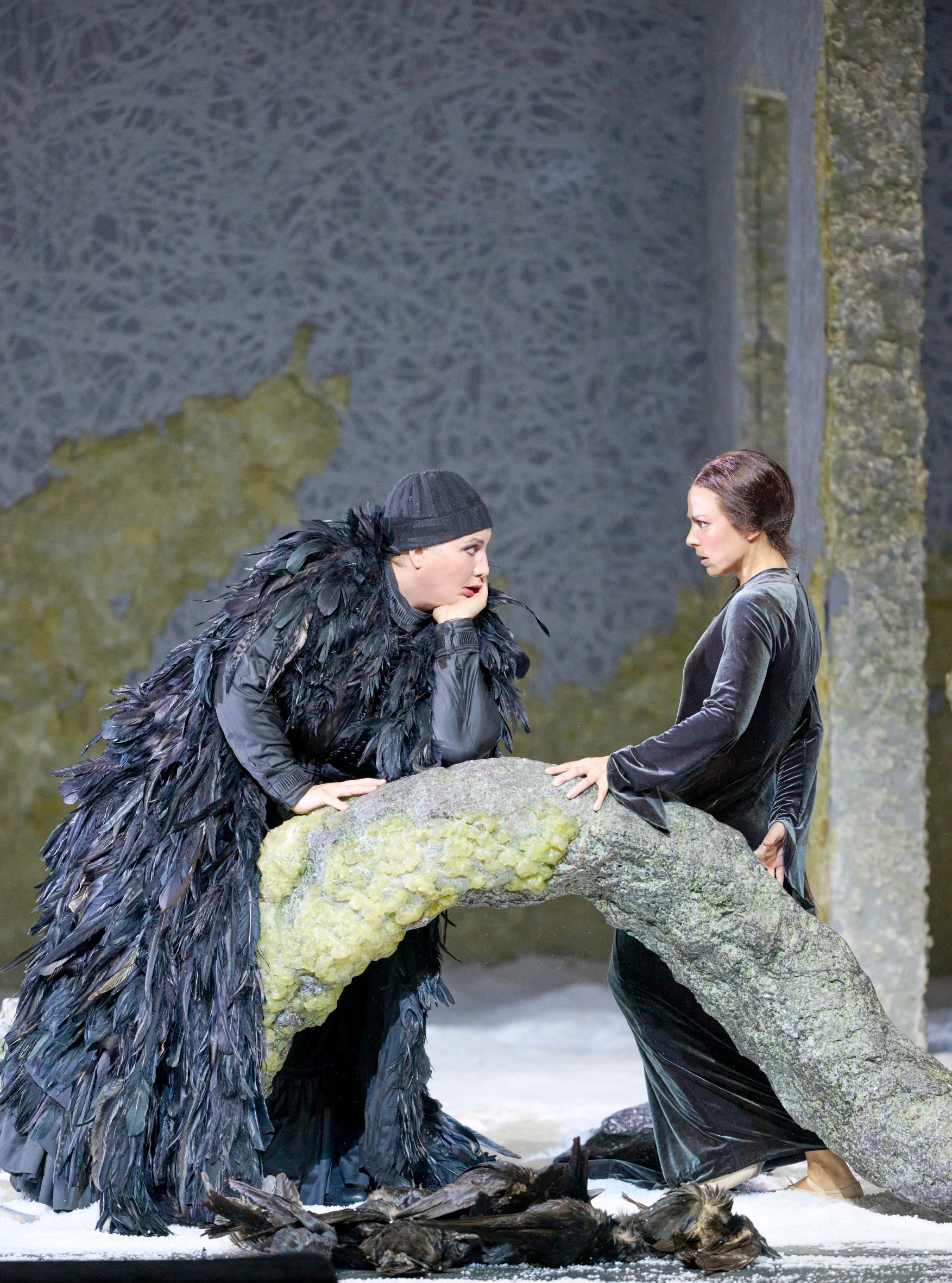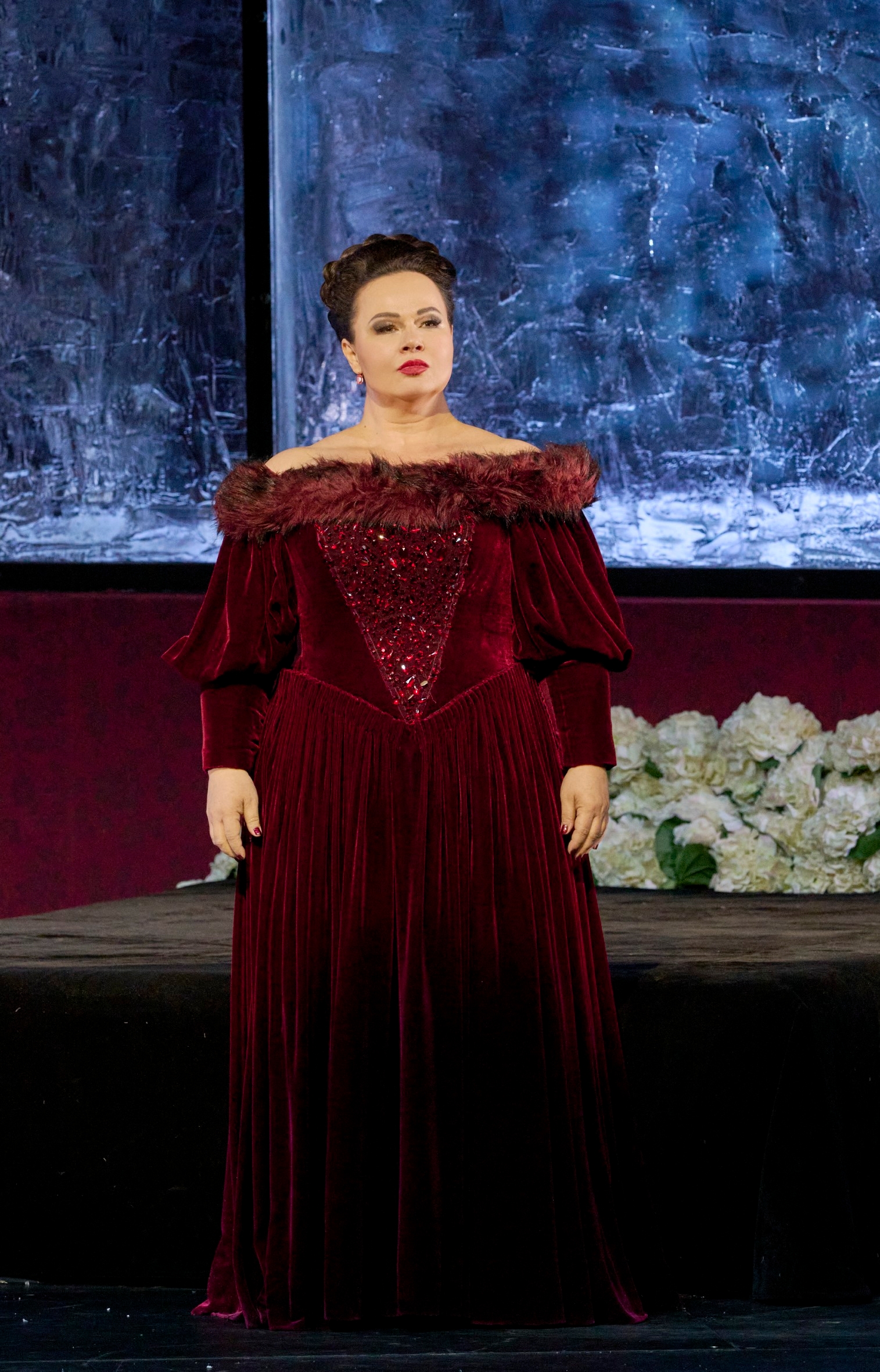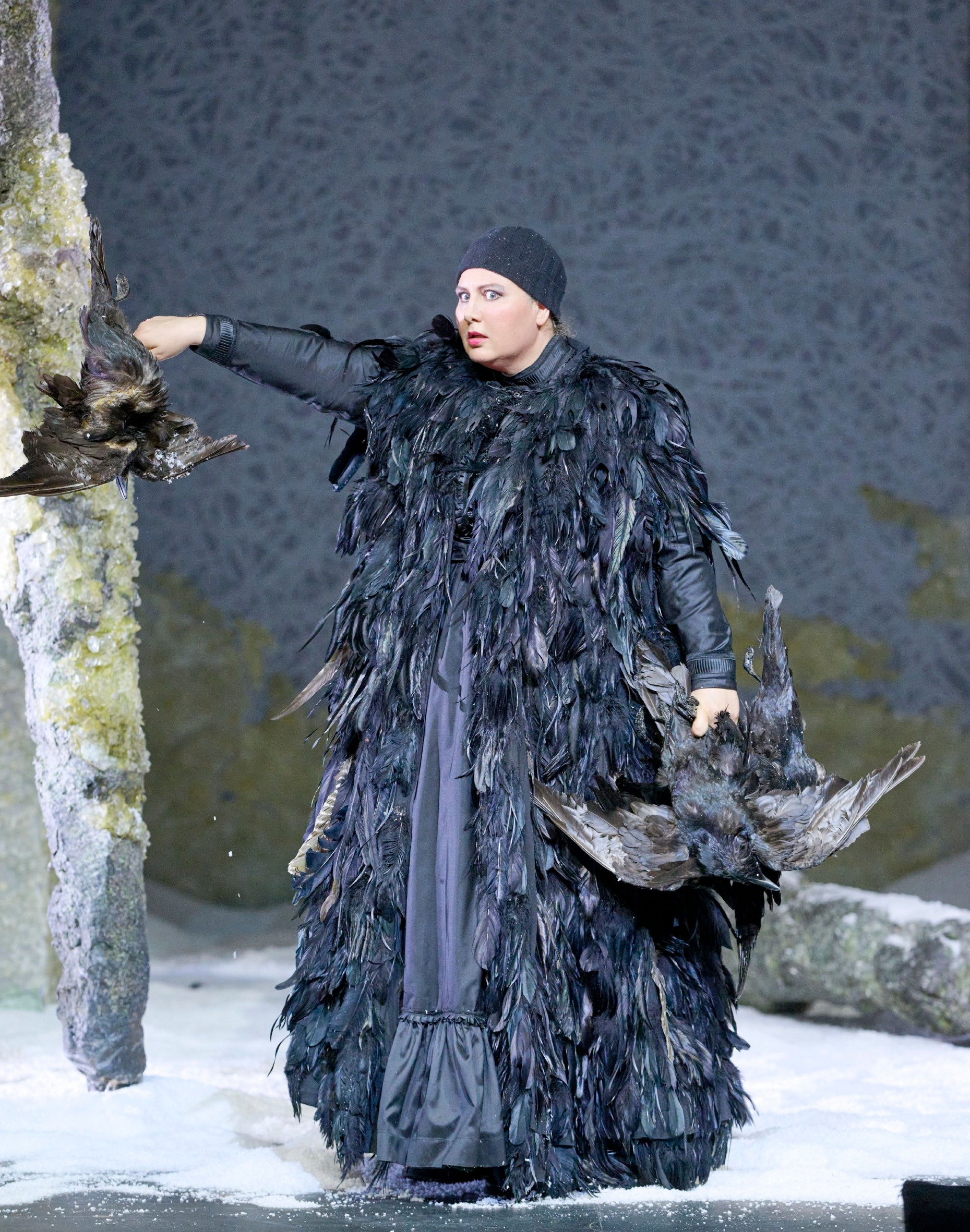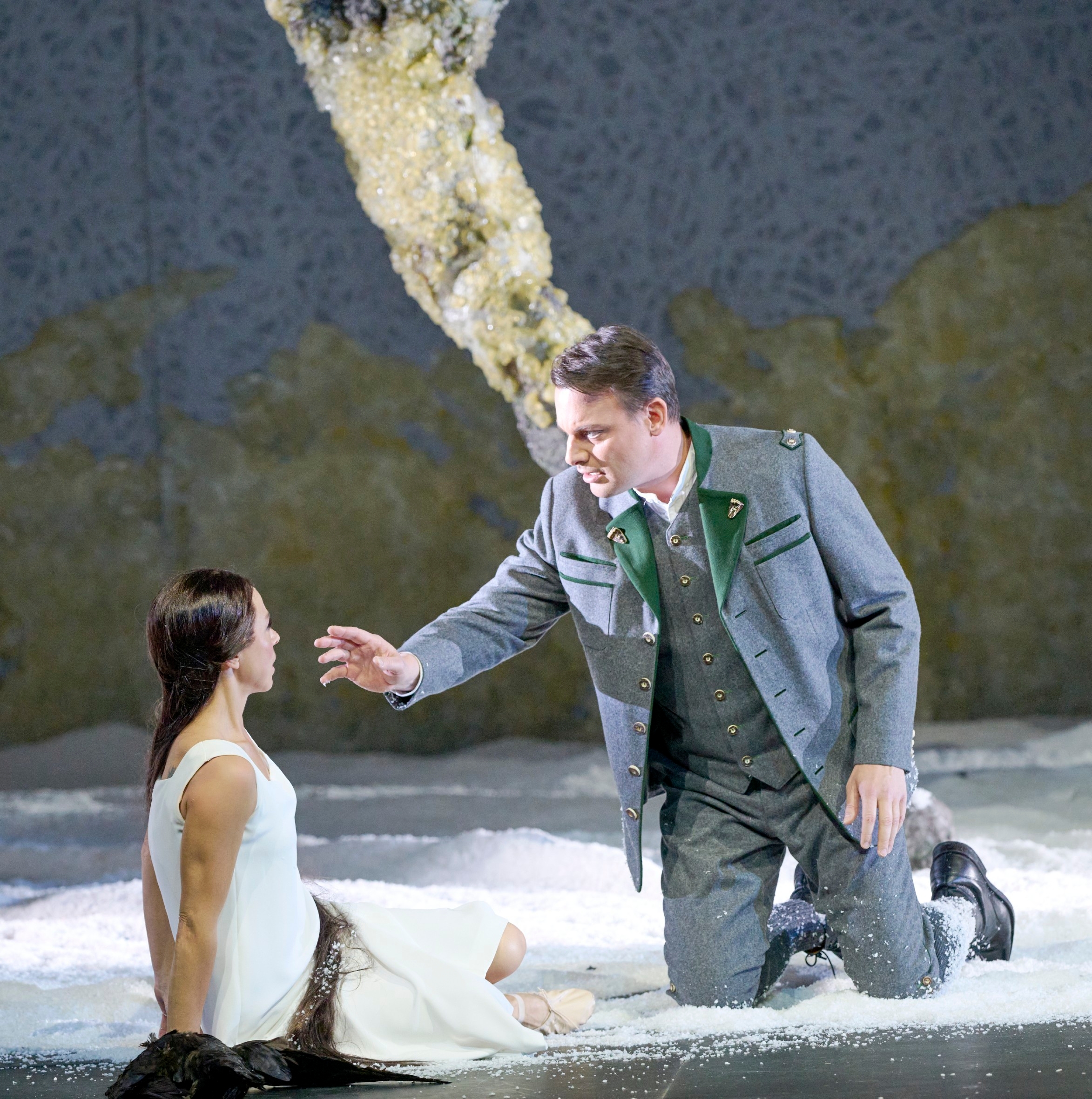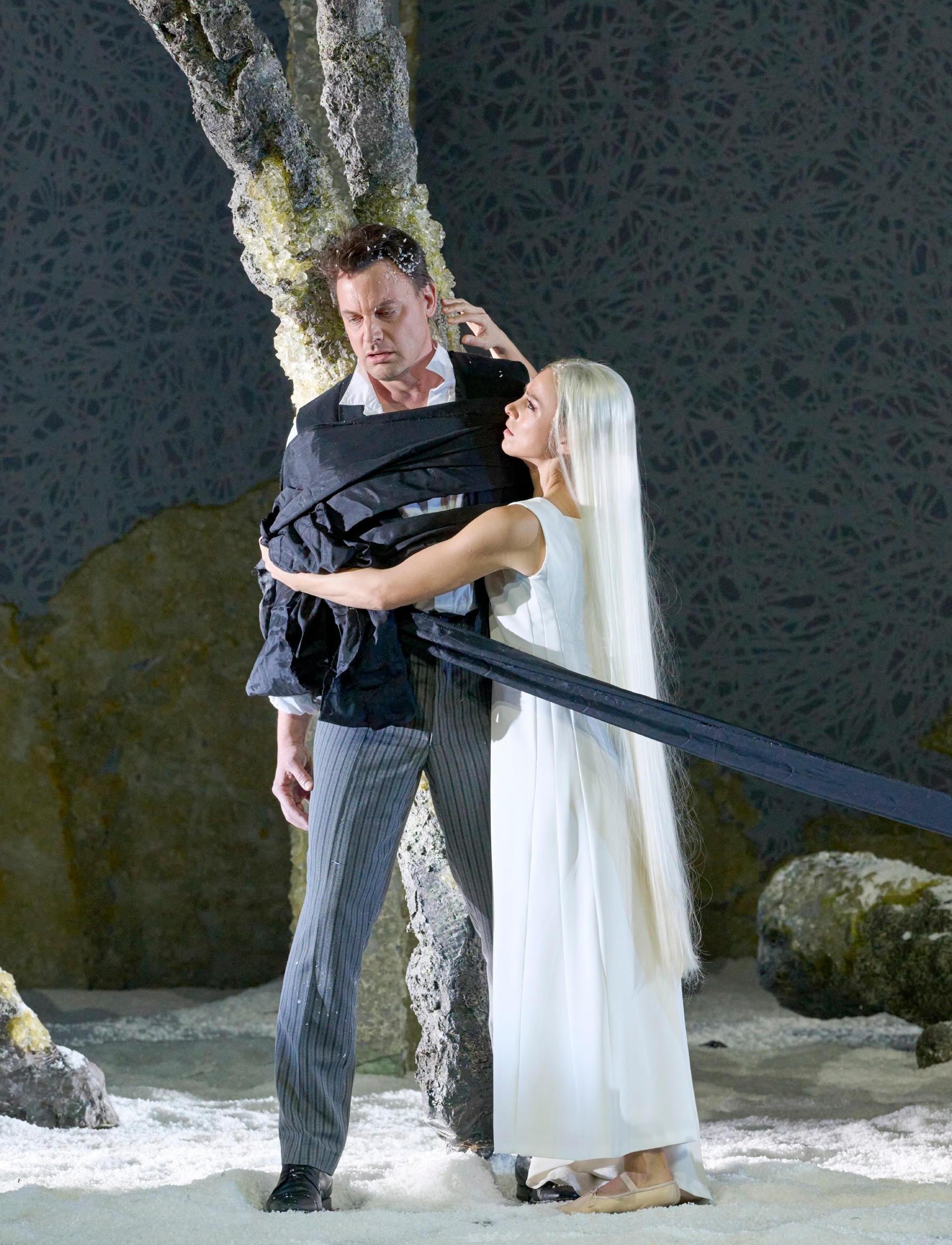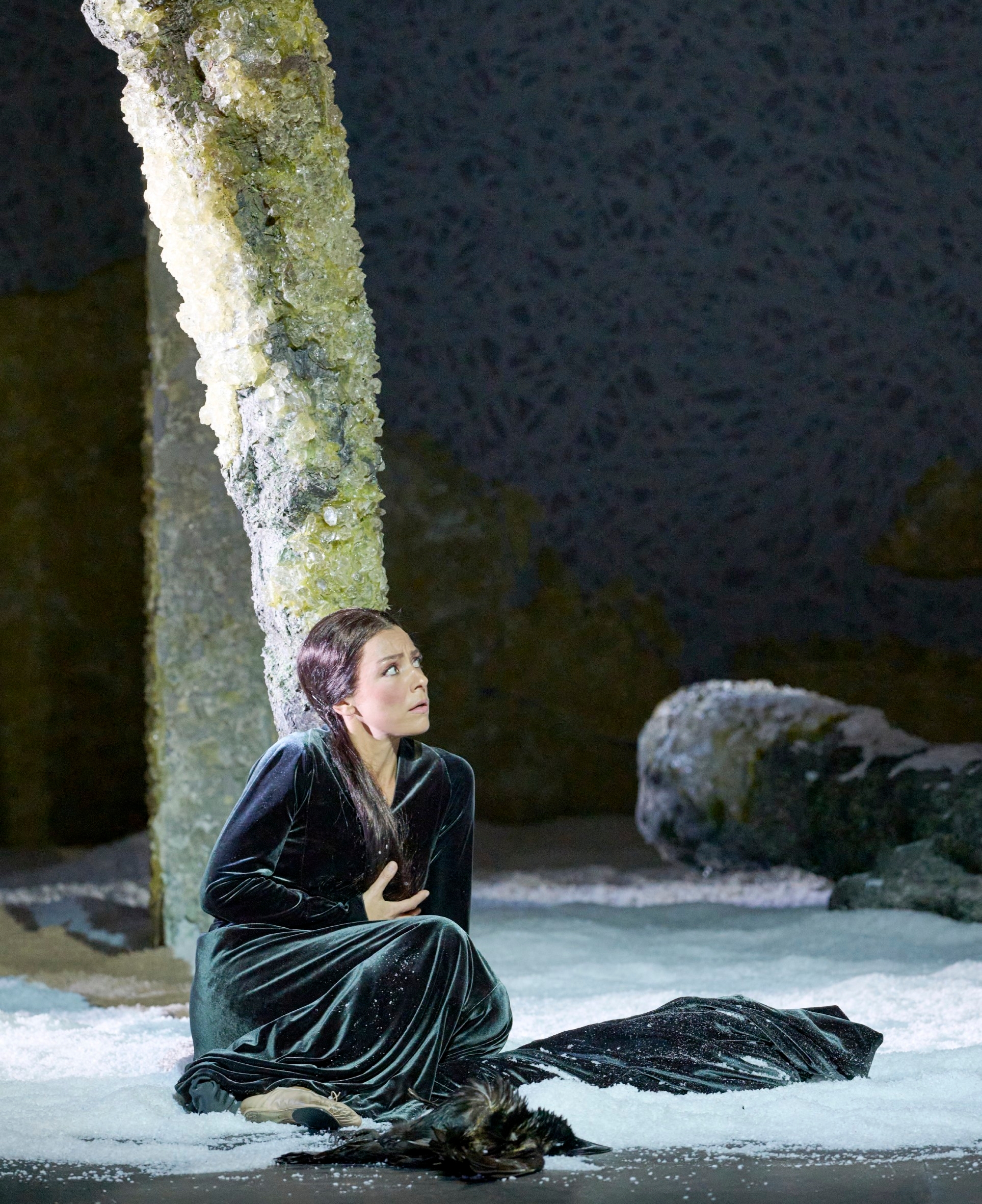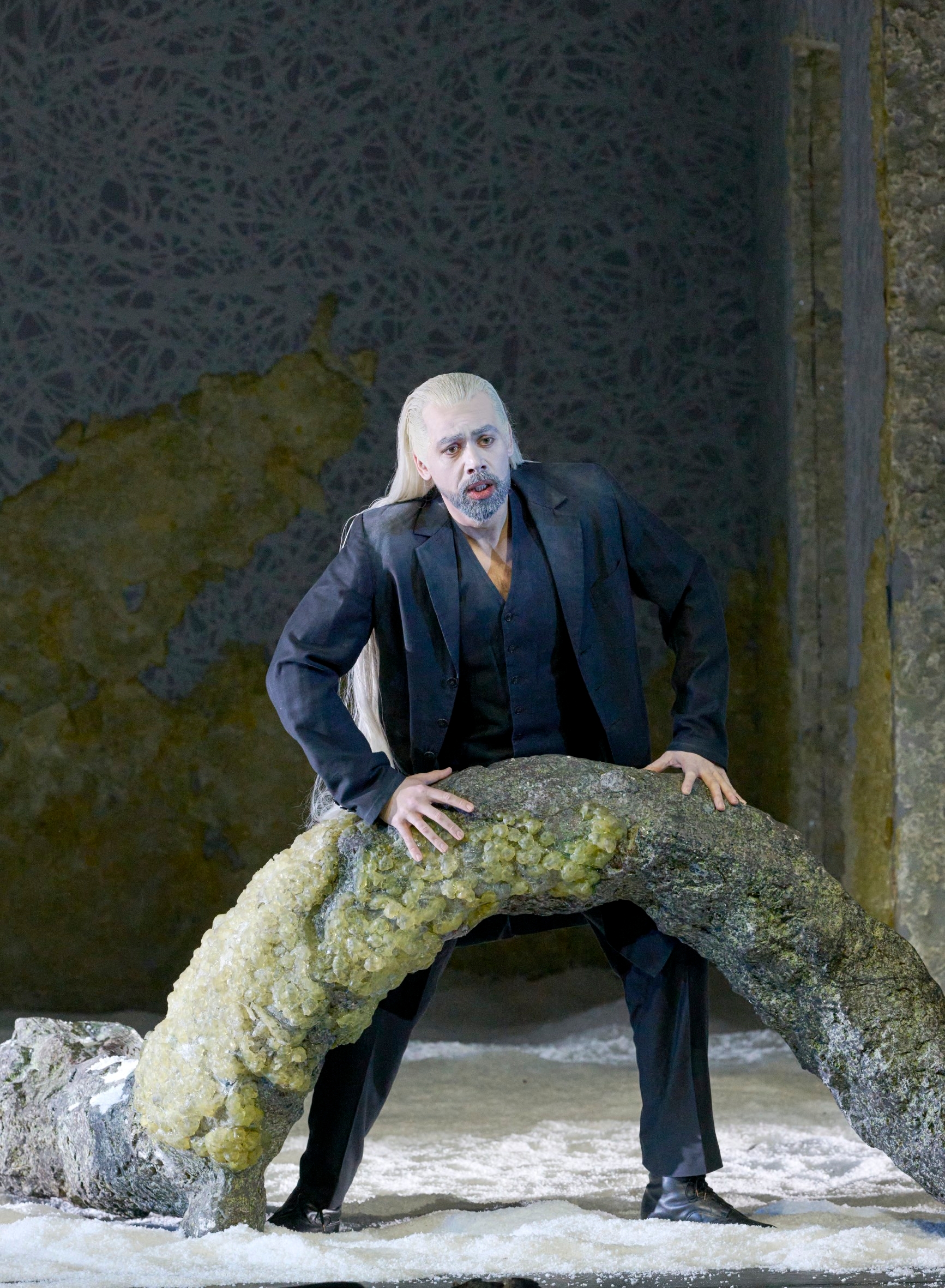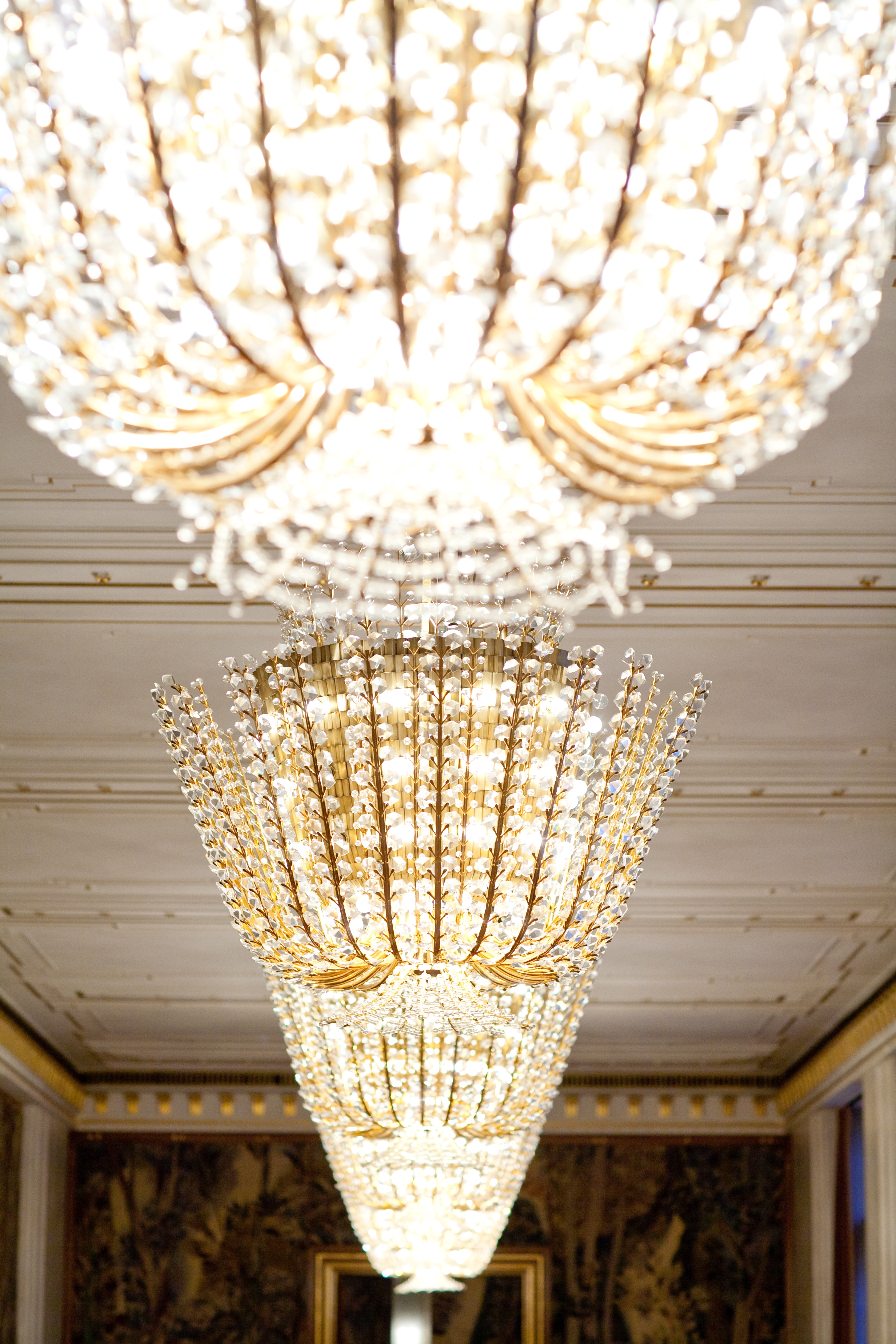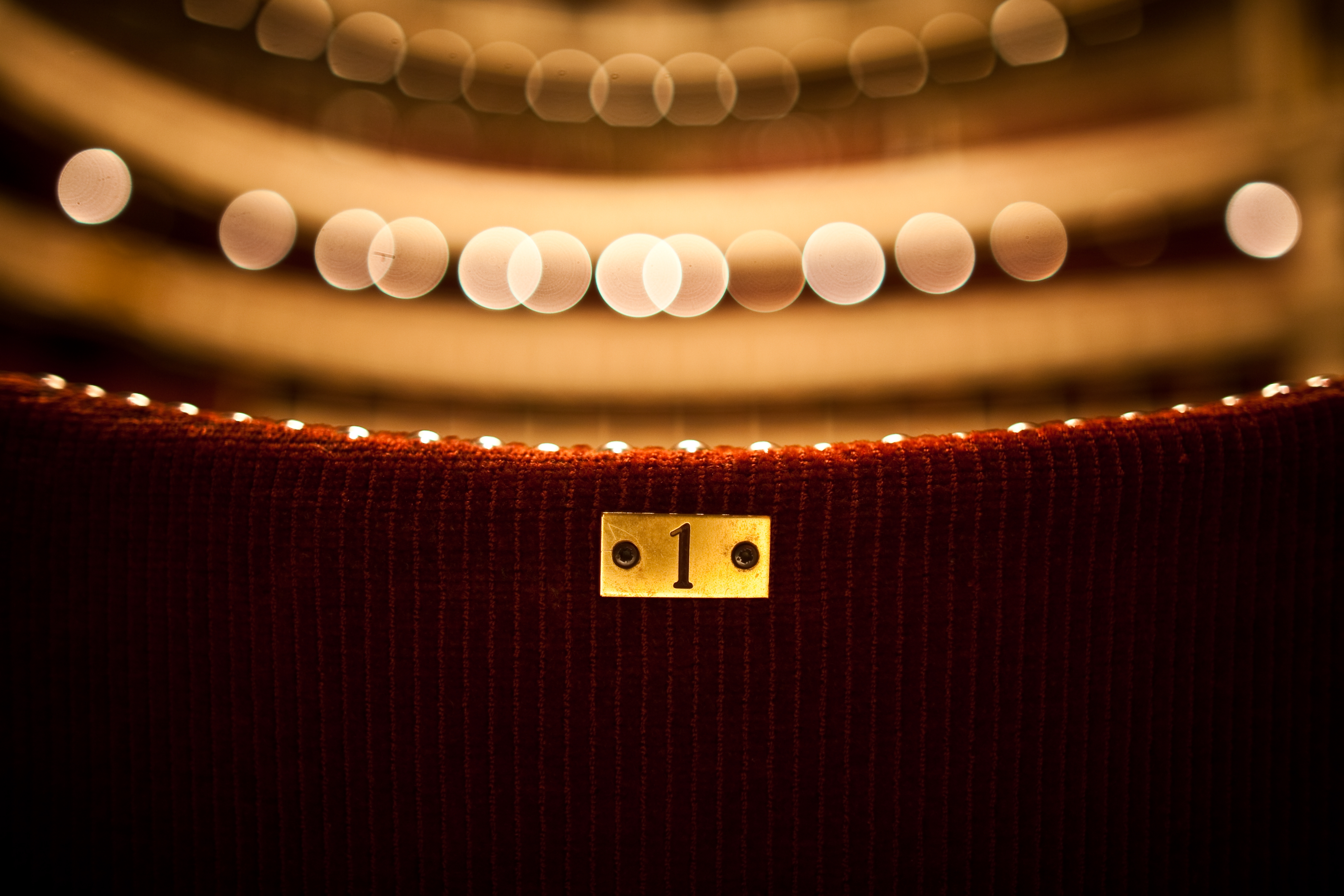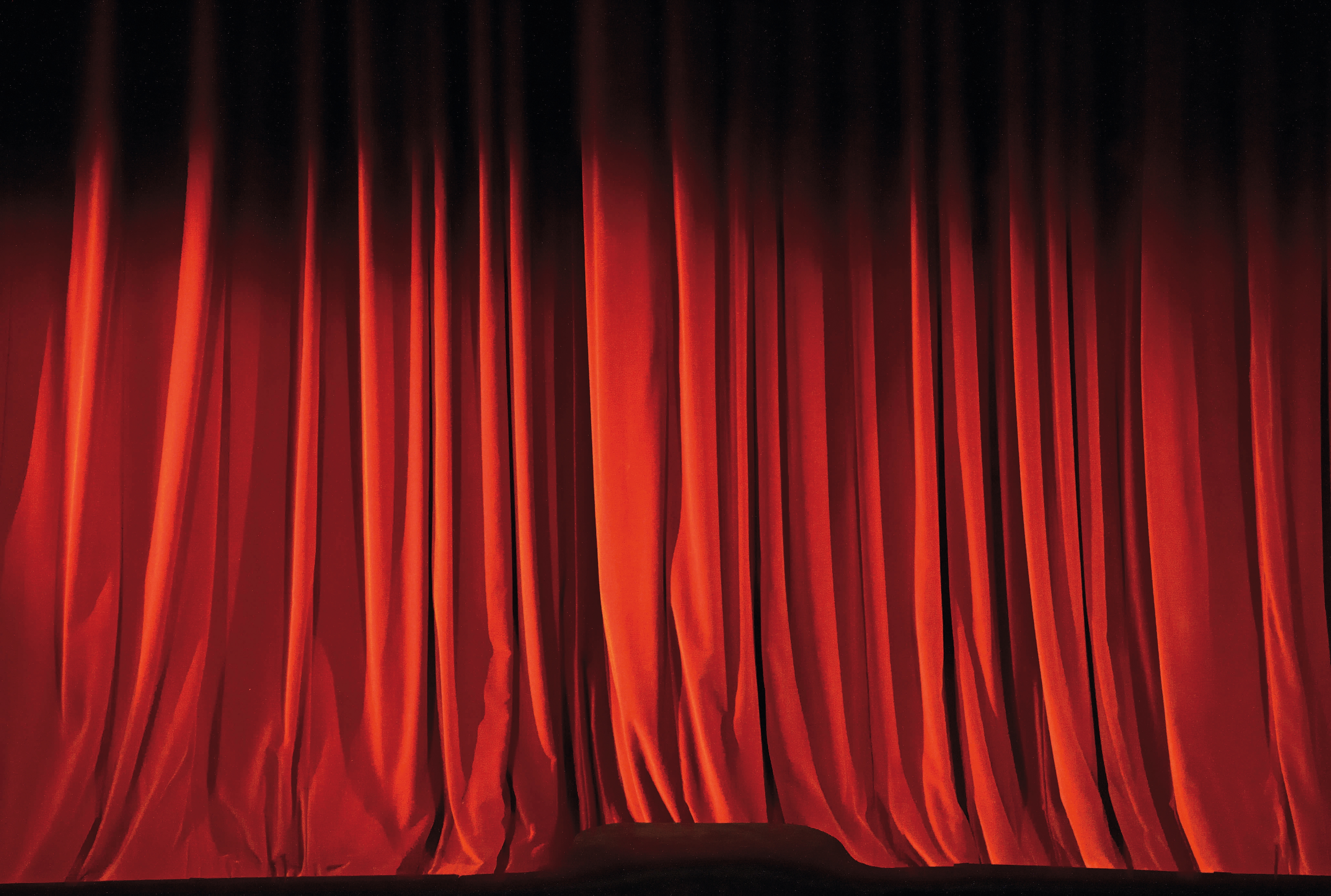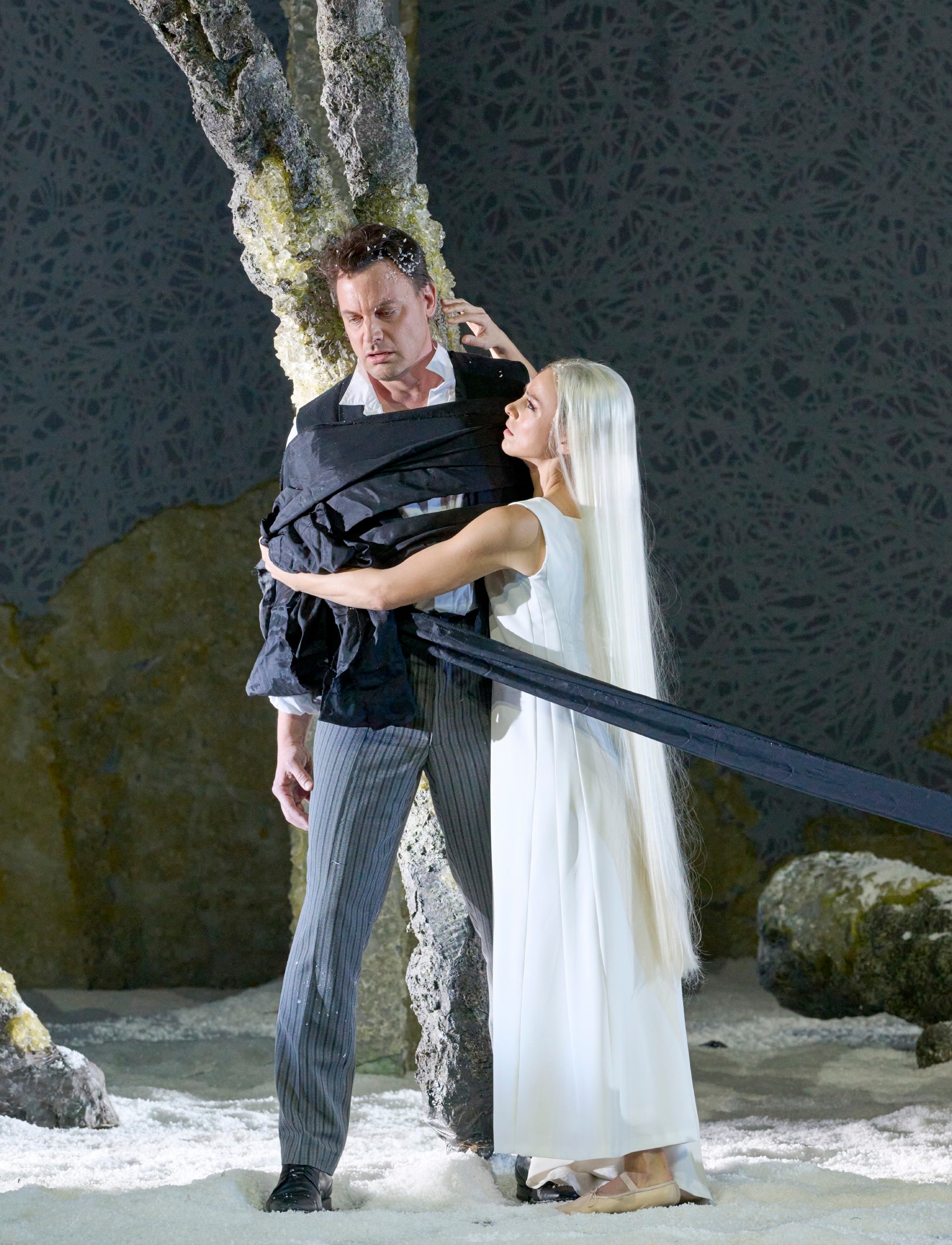
Short Summary
Civilization and nature, fears and longings, power relations and gender definitions collide in a psychologically exaggerated way.
Rusalka's loss of speech clearly reflects her fears of identification, exclusion and existence. Director Sven-Eric Bechtolf reflects these emotional and mental states in a surreal, unreal and oppressive world. The story of the renegade mermaid is told in haunting images between a snowy desert and barren woodland.
Rusalka
Storyline
In contrast to the playful wood elves, the mermaid Rusalka does not tease the newly awakened water sprite, but confesses to him her longing for a human form and a human soul and thus the fulfillment of her love for the prince she has often observed by the lake.
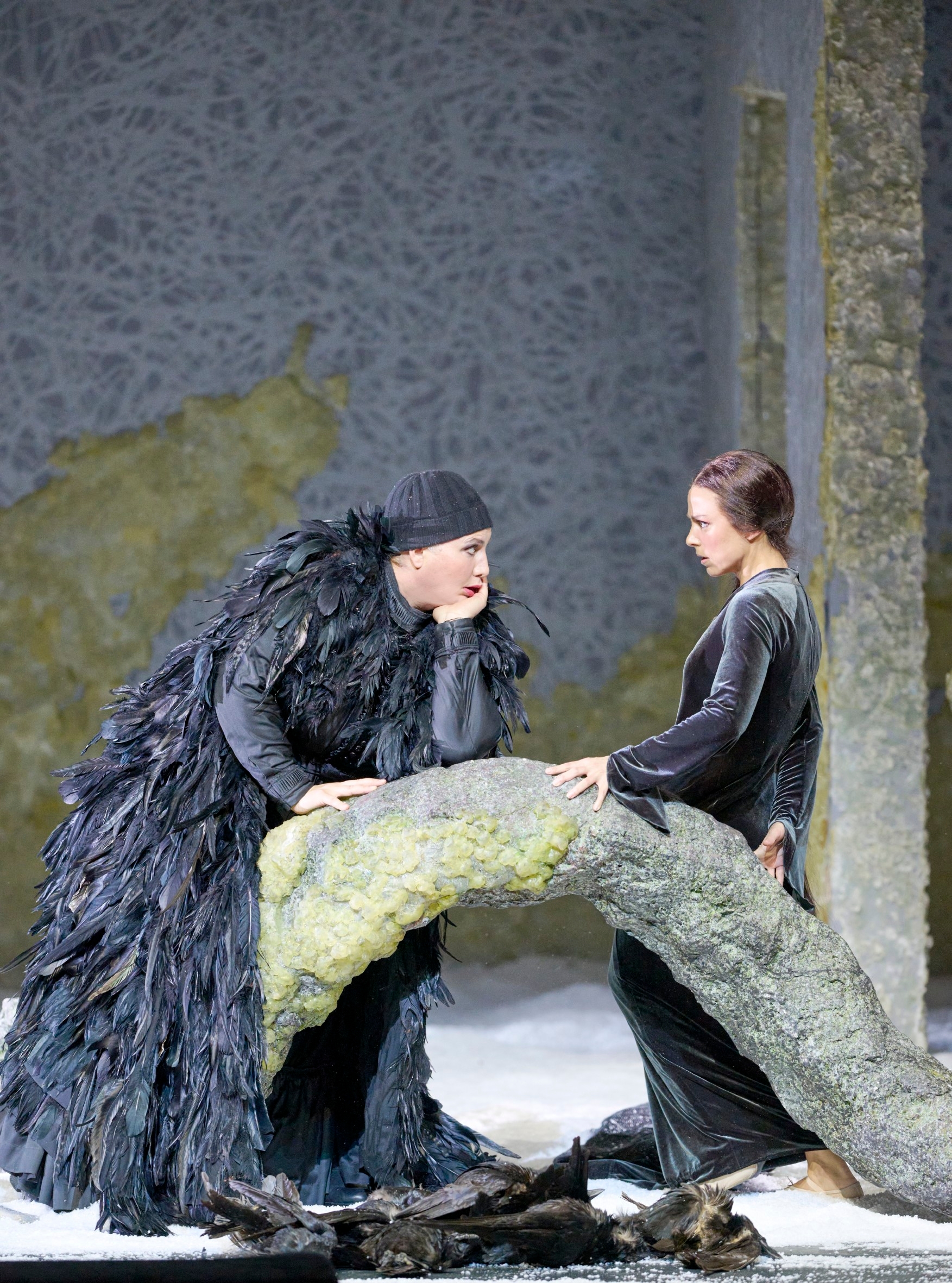
Although the water sprite warns Rusalka, he advises her to seek Ježibaba's help. Ježibaba appears and concludes a contract with the love-struck Rusalka: Rusalka will be given human form but will be struck dumb. If she is unable to win the prince's love permanently in this way, she will only be able to return to the mermaid kingdom if her lover dies.
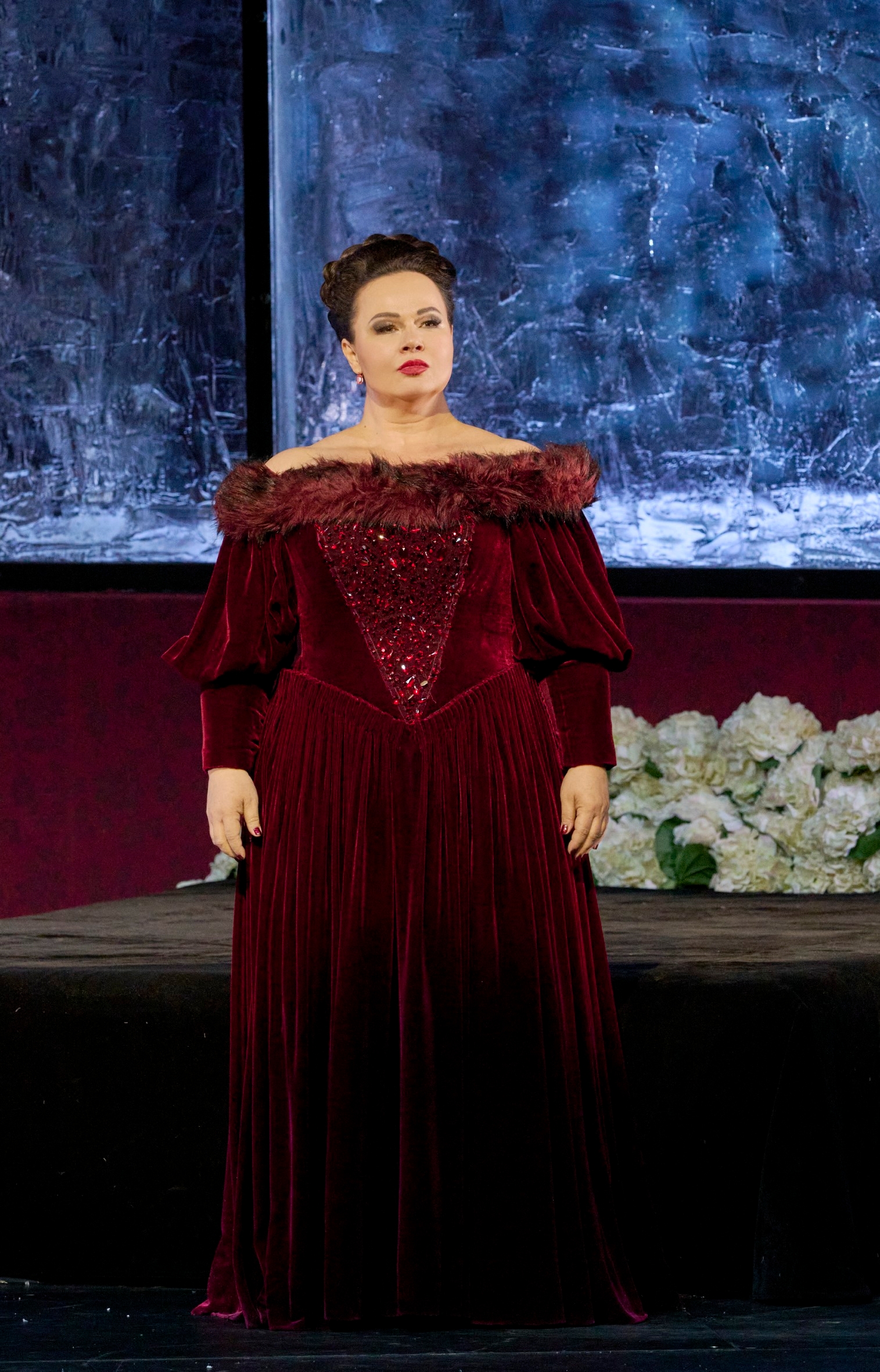
Rusalka agrees, is transformed and is actually able to awaken the love of the prince who soon appears. However, their planned wedding is prevented by a mysterious, strange, seductive princess who appears unexpectedly and draws the prince to her.
When the prince makes a declaration of love to the princess and dismisses his planned marriage to Rusalka as a mere adventure, Rusalka tries to win him back with her last hope, but is coldly rejected by him. The water sprite then curses the prince and drags Rusalka back into the depths of the water.
The story of a mermaid who falls in love with a human, leaves the water and fails in the face of the world runs through many of Europe's fairy tales and legends. In Dvořák's "Lyrical Fairy Tales", the pressing questions of the turn of the century found expression, which Sigmund Freud summarized under the catchphrase of unease in culture. Civilization and nature, fears and desires, power relations and gender definitions collide in a psychologically exaggerated way. Director Sven-Eric Bechtolf reflects these emotional and mental states in a surreal, unreal and oppressive world between a snowy desert and barren woodland. The director recommends that the audience "switch off your mind a little and let these strange, dark and sometimes grotesquely funny scenes take effect on you".
Dvořák adapts the characteristic musical descriptions of the protagonists to their respective situations and states of mind, he psychologizes his characters. Apart from these character leitmotifs (three motifs for four characters), there is also a so-called curse motif, and that would be number four: a violent chromatic musical upward movement in forte, it appears again and again when disaster announces itself or occurs, and it is so called because it is the accompaniment to the Aquarius' curse on the prince because, as he suspects, he will bring misfortune upon them. In comparison, it could also be described as the big angry brother of the negative third loop. This brings up a concrete keyword: Loops of thirds. This is what one could call the tone figures that appear repeatedly and in all variations throughout Rusalka, which move up a third interval, whether in whole tone steps or chromatically. It already begins in the overture, and if one thinks of Rusalka's famous song to the moon, but also of appearances by the admonishing Aquarius, then they are immediately present. (Heinz Irrgeber)
Around the time Antonín Dvořák was composing his opera, the first modern Czech illustrated encyclopaedia of general knowledge was published in Prague, the 22nd volume of which contains an astonishingly long article on the keyword "Rusalka": "In the traditional usage of the Russian people, Rusalky are wondrous creatures. They usually appear as very beautiful girls endowed with all the charms that are capable of enchanting a weak mortal. Their slender and agile figure is covered with green foliage or a white, unprotected shirt [...] Russian folklore contains numerous, extremely lively myths and legends about the Rusalky. It is often believed that children who have died unbaptized or died in an unnatural way become rusalky. Originally, the mythical creatures were called Nawje or Mawje, but later, when their main time and power was associated with the spring festival of Rusalje, they were given the name that has been preserved to this day."
